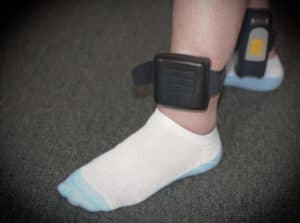These programs ease overcrowding and meet the goals of punishment and rehabilitation.
In California, decades of a “tough on crime” stance have left the state with overcrowded prisons. One way that the state has responded is by offering what is known as “alternative sentencing” more frequently. Although alternative sentencing can take many forms, such as community service or work release, another popular option is “supervised electronic confinement.”
Otherwise known as house arrest, this program allows the state to use technology to monitor offenders so that they can continue their employment or education while living in their communities and participate in court-ordered programs, such as alcohol education programs or drug treatment. However, as a Los Angeles criminal defense lawyer can explain, not ever person convicted of a crime in California will qualify for house arrest and electronic monitoring.
Alternative sentencing is only available for offenders who did not commit serious, violent, or multiple crimes. A person must also not present a risk to the community or to themselves. The court has discretion in allowing an offender to participate in an alternative sentencing program such as house arrest. To be eligible for house arrest, you must:
- be sentenced to time in a county jail (not state prison);
- be a nonviolent offender;
- have a home in or near the county where you were sentenced;
- have a telephone (landline) in the home;
- agree to the supervised electronic confinement rules; and
- pay for the extra cost of supervised electronic confinement (as much as $12 to $15 per day, available on a sliding scale basis).
If you meet these qualifications, your Los Angeles criminal defense lawyer can argue on your behalf for supervised electronic confinement. Some factors that often weigh in the favor of this type of alternative sentencing include being disabled or impaired in a way that would make being imprisoned dangerous for you. Importantly, if you are permitted to serve your time on house arrest, you will be required to serve the entire length of your sentence. Unlike in jail, you cannot earn “good time credit.”
When on house arrest, you must wear an electronic ankle bracelet at all times. This ankle bracelet must be recharged twice daily; failing to do so is a violation of the conditions of house arrest. This bracelet cannot be submerged in water, so offenders cannot take baths or go swimming. As your Los Angeles criminal defense lawyer will explain if you are granted house arrest, you will be monitored by the county probation department, and required to meet routinely with a probation officer. If you violate the conditions of your house arrest — including leaving home without an approved reason or violating curfew — you can be arrested immediately and removed from the program.
House arrest is just one option for nonviolent offenders who may be able to participate in alternative sentencing. If a conviction against you is assured and a guilty plea is your best option, a skilled Los Angeles criminal defense lawyer should review all possible options for sentencing and plea deals with you, including alternatives such as diversion programs.
At the Chambers Law Firm, our team of professionals understand how the system works — from the initial arrest to the different ways that people can be sentenced. We put this knowledge to work for our clients, to help them get the best possible outcome for their case. Contact us today at 714-760-4088 or dchambers@clfca.com to schedule a free initial consultation with a Los Angeles criminal defense lawyer.





